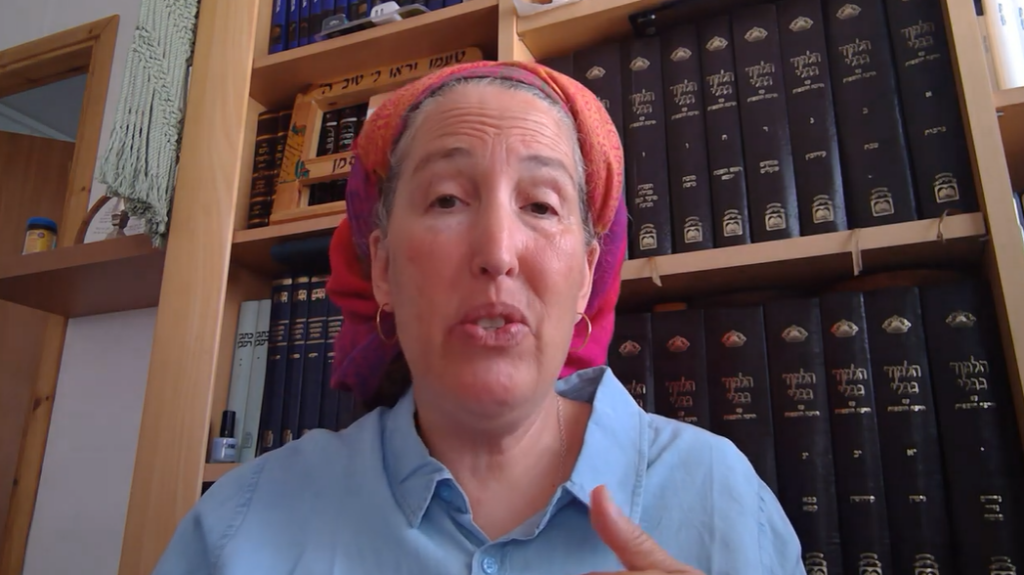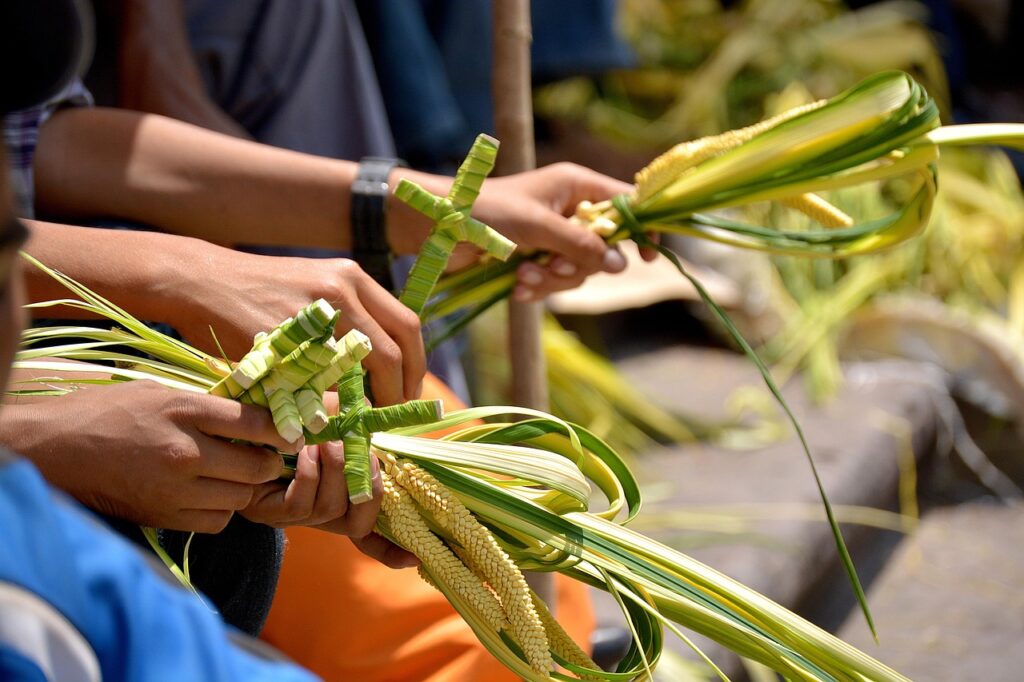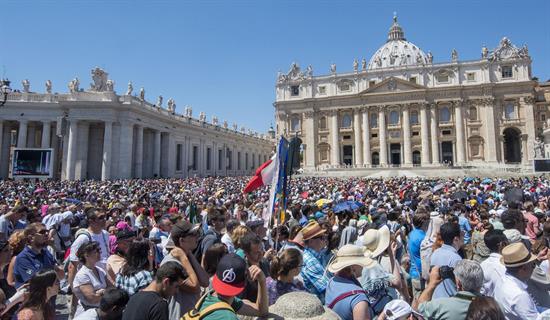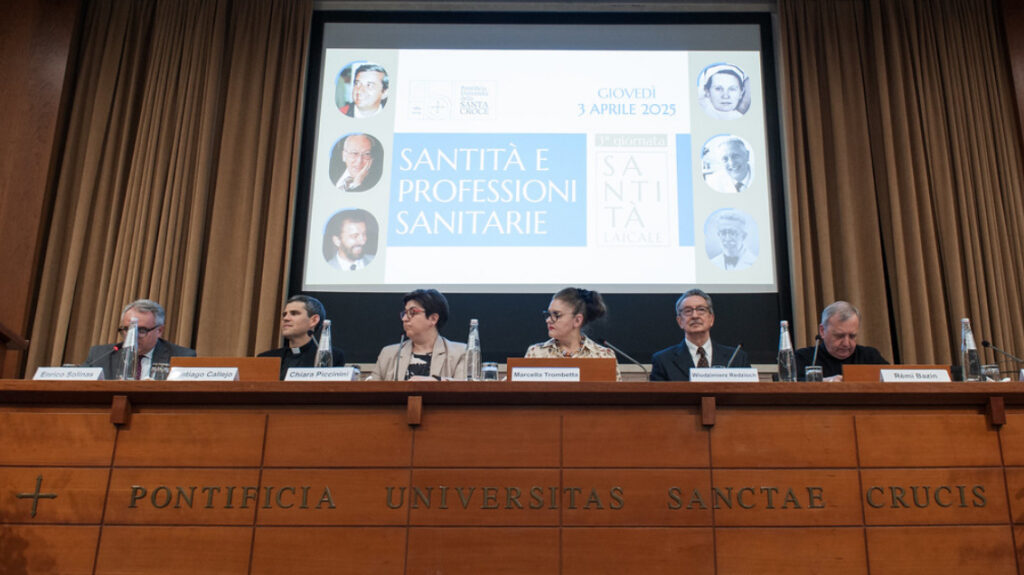Feast of Corpus Christi – Jewish commentary by Dr. Faydra Shapiro
For the feast of Corpus Christi or the Solemnity of the Most Holy Body and Blood of Christ, the gospel reading of course is the institution of the Eucharist at the Last Supper

I guess my question is a really basic one: why specifically bread and wine? There’s a lot of significance to bread. And there’s also a lot of significance to wine. But what about bread and wine together? Why not just bread. Or, I why not bread, wine and olive oil? Why this specific pairing?
And it turns out that question was harder to answer than I thought. Now in Judaism we also know that wine and bread are special in a unique way: before we eat or drink anything, we say a blessing related to each class of foods. So we have a blessing for things that for things that grow on trees, a different blessing said before eating things that grow from the ground, and a general blessing for things which do not grow from the earth, like eggs, water and meat.
There are only two exceptions – bread and wine – which each have their own very specific blessings. Before eating bread we thank God “who brings forth bread from the earth” and before drinking wine we thank G‑d, “who creates fruit of the vine.”
Bread – unlike all other grain products – merits a special blessing. And wine (and grape juice!) – unlike all other fruit juices – needs a special blessing. Neither grain, nor grapes, from which bread and wine are made, require special blessings. Similar examples from the ancient world, say, olive oil, which begins as a simple gift of creation and is then altered through the work of human hands have no such special blessing.
The question is why – for Jews and Christians – what is so special about bread and wine, a kind of specialness that they share with each other but do not share with other kinds of food or drink. And I think the answer is deceptively simple.
What is special about bread and wine is precisely that they aren’t special. They were considered absolutely basic things that one could not live without. In Lamentations 2:12 the starving, mourning children of destroyed Jerusalem cry to their mothers, “Where is bread and wine?” Bread and wine are clearly understood to be the essential foods that nourish and sustain the human person.
Of course, thanks to Paul’s letter to the Hebrews, Christians make much of Melchizedek bringing bread and wine to Abraham as a foreshadowing of Jesus. And while Jews don’t read that way, we do have an interesting midrash that uses Proverbs 9:5. There Wisdom – God – invites the simple and foolish to “partake of my bread and drink of the wine I have mixed” and with this, to live and walk in understanding. Using this verse from Proverbs, the midrash suggests that with bread and wine, Melchizedek actually revealed Torah to Abraham.
Torah – like bread and wine – is absolutely essential for sustaining life. Bread and wine might seem simple, and ubiquitous, but, at least in the ancient world, we cannot thrive as humans without them. For Christians, that should be just as true about Jesus.
About the author:
Dr. Faydra Shapiro is a specialist in contemporary Jewish-Christian relations and is the Director of the Israel Center for Jewish-Christian Relations. She received the National Jewish Book Award for her first publication (2006). Her most recent book, with Gavin d’Costa, is Contemporary Catholic Approaches to the People, Land, and State of Israel. Dr. Shapiro is also a Senior Fellow at the Philos Project https://philosproject.org and a Research Fellow at the Center for the Study of Religions at Tel Hai College in Israel.
Related

I have ardently desired to eat this Passover with you: Fr. Jorge Miró
Jorge Miró
12 April, 2025
2 min

Pope Francis Sends a Message of Hope to the Young People of the UNIV 2025 International Congress
Exaudi Staff
11 April, 2025
5 min

“Highway to Heaven” Arrives in Rome: Carlo Acutis’ Musical Evangelizes with Art and Heart
Exaudi Staff
09 April, 2025
2 min

University of the Holy Cross: A Day on Lay Holiness
Wlodzimierz Redzioch
08 April, 2025
3 min
 (EN)
(EN)
 (ES)
(ES)
 (IT)
(IT)

